
The Université du Québec à Montréal, is a French-language public research university based in Montreal, Quebec, Canada. It is the largest constituent element of the Université du Québec system.

Pierre "PK" Vallières was a Canadian journalist and writer, known as an intellectual leader of the Front de libération du Québec (FLQ). He was the author of the essay Nègres blancs d'Amérique, which likened the struggles of French-Canadians to those of African-Americans.

Université TÉLUQ is a public French-language distance learning university, part of the Université du Québec system. Originally founded in 1972 as the Telé-université, Université du Québec commission to develop distance education courses, Université TÉLUQ is now a full university which offers programs in undergraduate and graduate studies. It is the only French-language university education institution in North America to offer all of its courses and programs at all three university cycles remotely and continuously. Though it is based in Quebec City, Quebec, about two thirds of its professors work from its Montreal offices.

Trudeauism refers to the liberal political ideology associated with former Liberal Party of Canada leader and Prime Minister of Canada Pierre Elliott Trudeau. Trudeauism involves social liberal/liberal-socialist, economic nationalist, Canadian nationalist, and centralist policies. Social justice is also an important principle of Trudeauism, with the ideology envisioning a just society.

The Université du Québec à Rimouski is a public university located in Rimouski, Quebec, Canada with a campus in Lévis.

Pierre Dansereau was a Canadian ecologist from Quebec known as one of the "fathers of ecology".

Jean-François Lisée is a Canadian politician who served as the leader of the Parti Québécois from October 2016 until October 2018. He was first elected a member of the National Assembly of Quebec in the 2012 Quebec election in the electoral district of Rosemont.
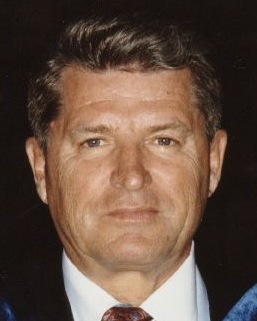
Rodrigue Tremblay is a Canadian economist, humanist and political figure. He is an emeritus professor of economics at the Université de Montréal. He specializes in macroeconomics, international trade and finance, and public finance. He is the author of books in economics and politics. Tremblay's documents and archives are kept at the Center of Archives of the Quebec National Library and Archives, in Montreal, Quebec.
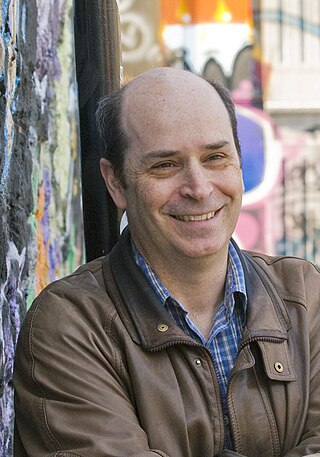
Simon Harel is a Canadian intellectual. In addition to being a prolific writer and speaker and an adjunct professor at the Département d'études littéraires of the Université du Québec à Montréal, he is full professor at and Director of the Département de littérature comparée of the University of Montreal.

Guy Berthiaume is Librarian and Archivist of Canada Emeritus. A Canadian historian specialized in the study of Classical Antiquity, he served as chair and chief executive officer of Bibliothèque et Archives nationales du Québec from June 22, 2009, to June 21, 2014, and, from June 23, 2014, to August 29, 2019, he served as Librarian and Archivist of Canada.
Bonnie Kathleen Campbell, is professor emeritus of political economy at the Department of Political Science at the Université du Québec à Montréal (UQAM). She has written extensively on issues related to international development, development assistance, governance, and mining.
Jorge Niosi was an Argentine-born Canadian academic who was a professor at the Université du Québec à Montréal from 1970. He became a Full Professor in 1984, and a member of the Department of Management and Technology at the School of Management Science, UQAM. From 2001 to 2015, he was the Chairholder of Canada Research Chair on the Management of Technology and Technology Policy. He was the founder of CREDIT, of which he was the director from 1986 to 1993. Right after that, he became director of CIRST of which he was a regular member. He held a 3rd cycle degree in economics from the Institut d’études du développement économique et social, and a doctoral 3rd cycle degree in sociology from the École pratique des hautes études. His doctoral thesis was published in 1974, then translated in French as Les entrepreneurs dans la politique Argentine. That first book was followed by 14 others, some of which were also translated, the latest being Building National and Regional Innovation Systems. His latest book published in Spanish in Buenos Aires is called: Construir la Nueva Economía Argentina.
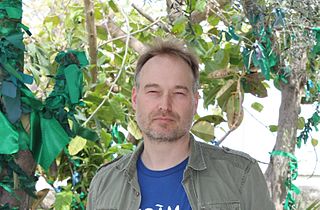
Stefan Winter is a Canadian historian specialising in the study of Ottoman Syria. He teaches at the Université du Québec à Montréal and has been visiting professor at Koç University in Istanbul. His research concentrates on Shi‘i, Bedouin and Kurdish principalities in northern Syria and southern Anatolia and has been published by Cambridge University Press, Princeton University Press and in a number of academic journals. His work won the Syrian Studies Association's prize for best dissertation in 2002 and the Ottoman and Turkish Studies Association's Fuat Köprülü Award in 2017.
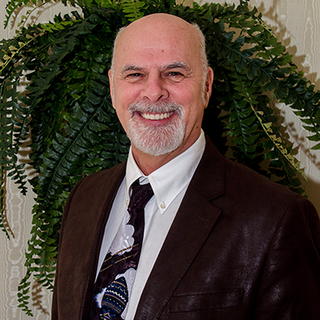
René Roy is a Canadian organic chemist from Quebec, specializing in glycobiology and carbohydrate chemistry. He is professor emeritus, Department of chemistry, at the Université du Québec à Montréal (UQAM) and associate professor at the Institut National de la Recherche Scientifique (INRS) – Institut Armand-Frappier (IAF). He is the founder and former director of PharmaQAM, a biopharmaceutical research center based at UQAM, focusing on the discovery of new bioactive molecules, their mechanism of action and the vectorization of drugs. He is a pioneer in the development of synthetic glycoconjugate vaccines both for human and veterinary health, having co-developed the first and sole marketed semi-synthetic vaccine for human use, preventing bacterial meningitis and pneumonia in developing countries.

Donna Mergler is a Canadian physiologist and currently professor emerita in the department of biological sciences at the University of Quebec in Montreal, Canada. Her research focuses on environmental health, specifically the effects of neuro-toxins on workplace and environment. She has also brought in lasting and real solutions to environmental degradation, while also focusing on gender and social equity.

Magda Fusaro is a university professor and academic administrator. From December 2006 to March 2018, she held the UNESCO Chair in Communication and Technologies for Development. In January 2018, she was appointed rector of the Université du Québec à Montréal (UQAM).
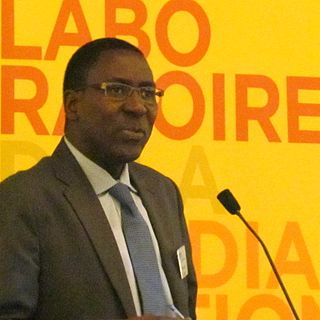
Mamoudou Gazibo OON is a Nigerien political scientist. He is a professor of political science at the Université de Montréal. He studies comparative political institutions and democratisation across African countries.
André Donneur has been a professor at the Université du Québec à Montréal (UQAM), Canada since 1969 after having taught at Laurentian University, from 1966 to 1969. He was a founding member of the department of political science of UQAM. He holds a doctorate from the Graduate Institute of International Studies.

Jean-Marc Piotte was a Canadian philosopher, sociologist, political scientist, and academic.

Yolande Cohen is a Moroccan-born Canadian historian and professor of contemporary history whose research focuses upon History of Youth and the History of Women. A Moroccan Sephardi, she also focuses on the History of Moroccan Jews. In the 1990s, Cohen was a politician, the initial leader of the Coalition Démocratique–Montréal Écologique municipal political party and its candidate for mayor in the 1994 municipal election. Cohen is a Fellow of Royal Society of Canada. Her awards include Knight of the National Order of the Legion of Honour and Knight of the National Order of Québec.

















